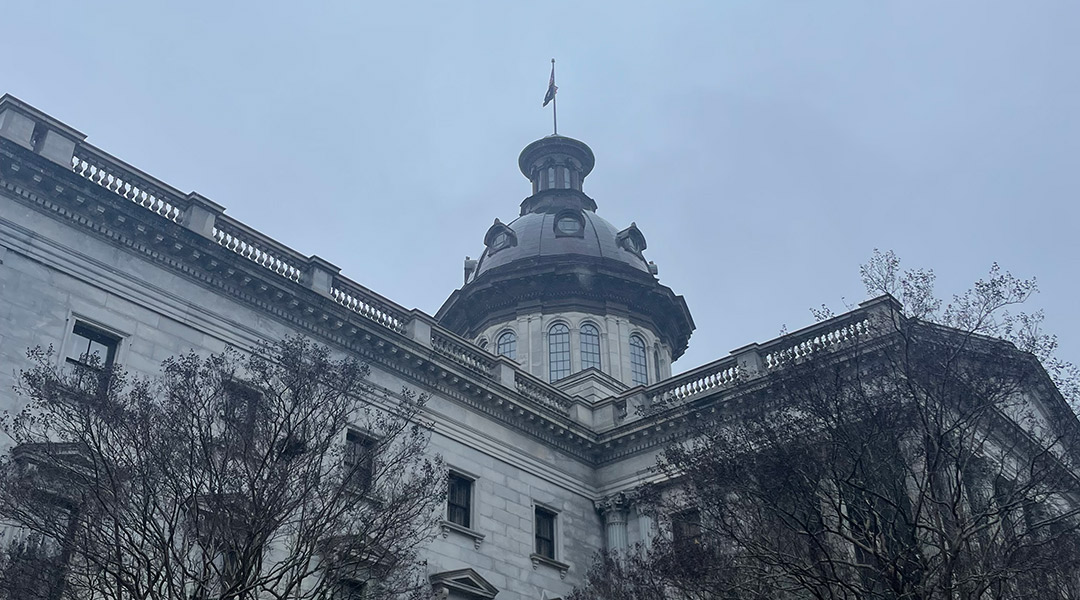The South Carolina statehouse, where the Senate chambers are located. (Photo by Taylor Beltz)
A South Carolina Senate subcommittee heard public testimony on Wednesday about a controversial education bill that would restrict how race is taught in schools.
Time ran out, though, before all of the public testimony was heard, pushing a vote to the next subcommittee meeting.
The bill passed in the House in February before being introduced in the Senate.
Some topics related to race would be prohibited in the classroom under the bill.
It also would introduce a system for parents to report teachers that violate the restrictions.
Kay McSpadden, a former educator, urged the subcommittee members on Wednesday to vote against the bill because it would damage relationships between parents and schools by encouraging parents to become overly involved in classrooms.
“Your constituents didn’t elect you to be the thought police or to drive wedges between community schools and parents,” McSpadden said. “That’s what this bill attempts to do.”
She also talked about lesson plans she would not be able to teach if the bill were passed, including a lesson about conscious and unconscious bias based on Plato’s teachings.
Other former educators supported the bill, saying they think it would promote transparency in schools.
“Parents have opportunities to choose that education and should have a right to know what’s going on in their classroom with their children,” former educator and pastor, Ken Jumper, said during the meeting.
The distrust between parents and teachers is “palpable,” parent Whitney Hendricks said.
The proposed bill would mend that relationship, said Melanie Shull, a former educator.
“Trust has been broken, transparency has become null and void, educational integrity has gone out the window decades ago, but I do see a glimmer of hope for a bright future,” Shull said.
Critical race theory, a term some use to describe the discussion of race and its effect on society, also was a hot topic at the meeting.
Teaching critical race theory in schools divides students about topics of race instead of unifying them, Devin Sumter said to the subcommittee.
“This is the biggest civil rights issue of our time, is the attack of our children using critical race theory and gender ideology on our children,” parent David Warner said.
Josh Malkin, legislative advocate for the ACLU, spoke against the bill because it would prohibit the teaching of critical thinking.
“If we want the next generation to be able to think critically and grapple with complex societal problems, they need a greater understanding of how oppression evolves and operates, not censorship for these topics,” Malkin said.
Amy Strong is a retired teacher who opposes the legislation, saying the content of it “quite frankly, scares” her.
“The very heart of our democracy is the ability to speak freely, to read freely, debate freely and grapple with tough ideas, even ones we don’t like,” she said.
There’s controversy surrounding education in South Carolina, and this bill has caused some of worst Patrick Kelly, from the Palmetto State Teachers Association, said he has ever seen.
Members of the state Jewish community also have voiced their concerns about the bill and how it affects the teaching of the Holocaust, Jonathan Leiter said.
Rabbi Dr. Meir Muller, a professor at the University of South Carolina, told the story of his grandmother’s experiences with censorship as an educator in Nazi-occupied Austria.
One of the first things she ever told a family member, his sister, about her experience was that “they came for the teachers first,” Muller said.


